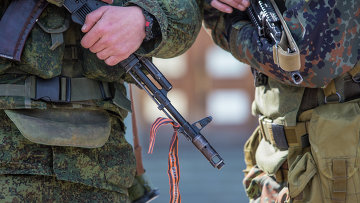
The new ‘Cold War’ is heating up
Developments in Ukraine are part of the after-shocks from the seismic collapse of the Soviet Union. The incorporation of the Baltic states into the European Union (EU) and Nato, not to mention the former east European countries, was the first geopolitical after-shock, followed by the break-up of Yugoslavia.
Ukraine’s Orange Revolution nine years ago was a far more consequential attempt to re-arrange geopolitical cards, though it proved abortive. The current developments in Ukraine are a continuation of the US/EU project of extending the political, economic and security frontiers of the West into the heartland of the erstwhile Soviet Union. The objective is to geopolitically weaken Russia by controlling its external periphery and leaving it no security buffer on its West.
The argument that Ukraine as an independent country should have freedom of choice with regard to its external affiliations is not illegitimate. But external interference and geopolitical calculations vitiate it. The United States and the EU are exploiting weak Ukrainian national sentiment, corrupt governance and the Europe-oriented Catholic population of the country’s eastern part to advance their goals. Russian President Vladimir Putin’s project of a Eurasian Union, with Ukraine as a key participant, does not suit the West’s strategy.
The West’s Cold War attitudes towards Russia persist because the phobia of a strong Russia endures. Beyond Ukraine, the target is a change of regime in Russia led by local pro-democracy and pro-European forces. Hence the systematic vilification of Putin personally as his strong leadership is seen as obstructing the change that the US and the EU seek in Russia to be able to exercise control over its politics and economics from within.
Russia has argued that developments in Ukraine, to the extent that they are rooted in internal divisions, should be handled by the West and Russia through consultation rather than confrontation. While it is true that western Ukrainians would prefer the EU option over the less attractive Eurasian option, the eastern Russia-speaking Ukrainians would not want to join a process that would detach them from Russia.
The Pandora’s box has been recklessly opened up in Ukraine by the West. Russia’s national interests in Ukraine are far weightier than those of the West. The Soviet collapse left millions of Russians outside Russia’s present borders, including in Ukraine. Russia has no defensible borders with Ukraine. The economies of the two countries are intermeshed. Russia’s Black Sea will become vulnerable if the West extends its control over the whole of Ukraine.
It is not surprising, therefore, that Russia is defending its interests robustly. US secretary of state John Kerry’s threat to isolate Russia economically is vintage Cold War posturing. His harangue that “You just don’t in the 21st century behave in 19th century fashion by invading another country on a completely trumped up pretext” is deliciously ironic, especially if one recalls the US invasion of Iraq.
It is unclear how Ukraine can be stitched together again in any compromise solution that will give the western Ukrainians and their US/EU backers what they want and the eastern Ukrainians and Russians what they seek. A chasm of mistrust has been opened up between Russia and the West over a highly sensitive issue.
For India such geopolitical games in Europe are a disappointment. Regime change policies through street violence backed by external interference threaten the global fabric of international relations and should not be countenanced by us.
Kanwal Sibal is a former foreign secretary, Government of India
The views expressed by the author are personal
Source: Hindustan Times, March 05, 2014, http://www.hindustantimes.com/comment/analysis/the-new-cold-war-is-heating-up-now/article1-1191025.aspx

 March 13, 2014
March 13, 2014  Опубликовано в
Опубликовано в